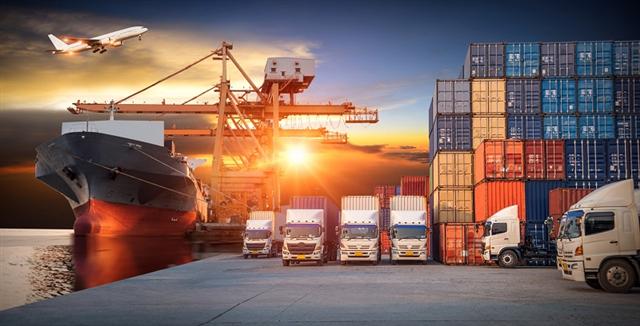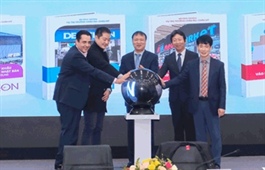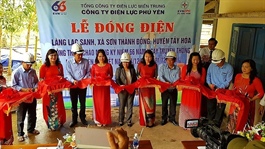Logistics sector in Vietnam to prosper despite Covid-19
Logistics sector in Vietnam to prosper despite Covid-19
Rapid urbanization and rising middle class are among the biggest drivers for the growth of Vietnam's logistics sector.
Logistics in Vietnam and Asia-Pacific reveal key trends that will continue to drive the growth of investment into the sector despite persistent short-term Covid-19 headwind.

Logistics sector in Vietnam is supported by rapid urbanization and rising middle class. Source: JLL Vietnam
|
Indeed, logistics rents were largely flat in the second quarter this year amid decline in office and retail rents and capital values in 8 out of 10 key market across Asia-Pacific, a report by JLL has showed.
The results signal that logistics sector will thrive in Vietnam and the regional thanks to efforts to promote economic connectivity for the post-pandemic recovery.
JLL has pointed out reasons for the prospect of Vietnam’s logistics sector, including rapid urbanization and rising middle class which are among the biggest drivers for growth.
The leading real estate and investment management firm emphasized that demographic forces drive demand for commercial real estate and this is a major factor that underpins demand in Vietnam specifically and Asia-Pacific in general.
Around 35% of Vietnam’s population currently live in urban areas, compared to 29% a decade ago.
As the market matures, the level of logistics space required to serve the population is likely to rise, leading to greater requirements for logistics space.
Vietnam’s substantial middle-class population, coupled with rising income levels, are expected to support consumption levels in the region.
E-commerce is a positive tailwind for the demand of logistics real estate. Typically, e-commerce firms use more logistics space than brick-and-mortar retailers. This is largely due to a more extensive product range, greater inventory levels, larger outbound shipping space requirements, and increased reverse logistics (returns process).
E-commerce now accounts for around 20% of all retail sales in AP as compared to 14% globally, while Vietnam is currently one of the fastest growing e-commerce markets in Southeast Asia. Vietnam’s e-commerce revenues were estimated to have reached US$4.07 billion in 2015, increasing to $6.2 billion in 2017, and likely to roughly $13 billion by the end of 2020, doubling the level in 2017.

Trang Bui, Head of Markets, JLL Vietnam. Photo: JLL Vietnam
|
Trang Bui, Head of Markets, JLL Vietnam, comments on the trend ‘The Covid-19 pandemic is accelerating automation in the logistics sector and will become a major trend in the near future. Tenants are upgrading from outdated, often small and owner-occupied facilities to newer facilities in premium locations.”
Simultaneously, the consolidation of logistics operations into more modern facilities is improving efficiency and reducing the overall logistics costs of tenants, Ms. Trang said, adding that growth in other industries will also support 3-party-logistics market expansion, including growth in the food and beverage, healthcare and pharmaceuticals, and office and technology equipment industries.
JLL experts also shared that cold storage might soon become a rising star in this sector as online groceries skyrocketed during the pandemic, requiring more refrigerated warehouses close to the customers. There has been a spike in short-term logistics requirements directly linked to the immediate impact of the pandemic, particularly in relation to the significant expansion of online grocery spending, and the need to support critical health services such as vaccines distribution.
To achieve growth goals in the logistics industry, there remains many challenges that Vietnam need to overcome, including the continuity of investment in renewable energy and infrastructure, both highways and utility networks. In addition the country’s cross-border trade process needs significant improvements in both processing time and costs, JLL emphasized.


























